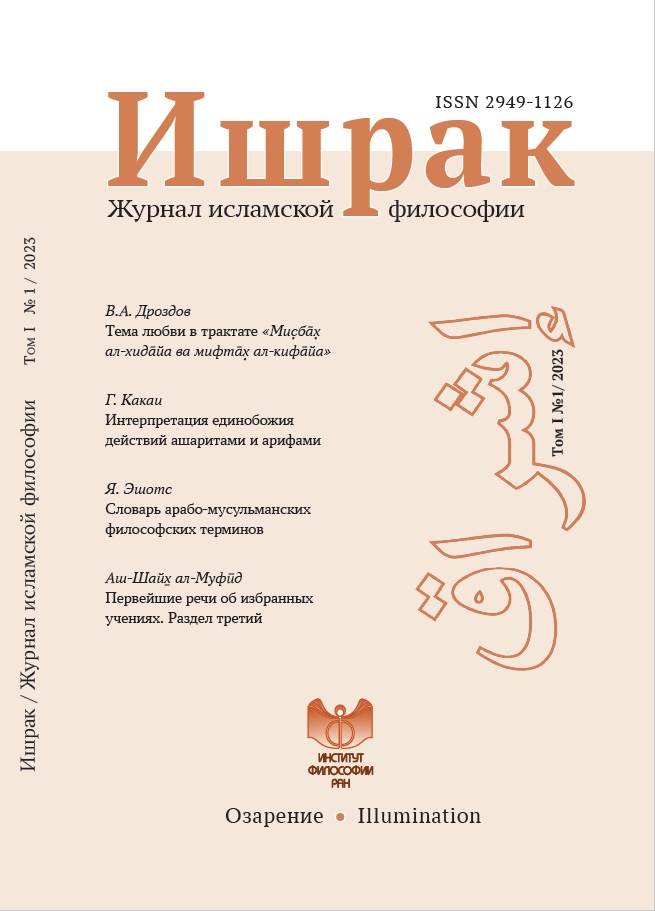Disputes over Divine Knowledge: ’Abū al-Barakāt al-Baġdādī vs Falāsiafah
Keywords:
Knowledge of God, ’Abū al-Barakāt al-Baġdādī, Universal, Particular, Aristotle, Ibn SīnāAbstract
This study deals with the analysis of the knowledge of God, which is considered one of the most complicated problems in human thought. This issue has belonged to the areas which have been of philosophers and theologians’ interest since Aristotle. The study consists of three main parts. In the first part, Aristotle’s approach to the topic and approach to these criticisms by ’Abū al-Barakāt al-Baġdādī, will be examined. As a matter of fact, ’Abū al-Barakāt revealed the proofs about the correctness of the views of Aristotle and afterward went on to scrutinize them. ’Abū al-Barakāt made fundamentally convulsive objections to the foundations and proofs that Aristotle asserted that God had no knowledge other than knowing Himself. In the second part, the Islamic theologians’ thoughts about the issue and their views on this issue will be discussed. In the third part, the ideas of Peripatetic Islamic philosophers, first all Ibn Sīnā, will be brought together. ’Abū al-Barakāt’s al-Muʻtabar was interested in the thoughts of Ibn Sīnā as the greatest philosopher and subjected him to criticism where he found it incomplete. But in this study, we will focus on the significant areas of the “God knows not partial but universals” judgment of the Peripatetic Islamic Philosophers. The real purpose and outcome of these judgments, and also background of these discourses and the foundations on which they are based, will be questioned.


